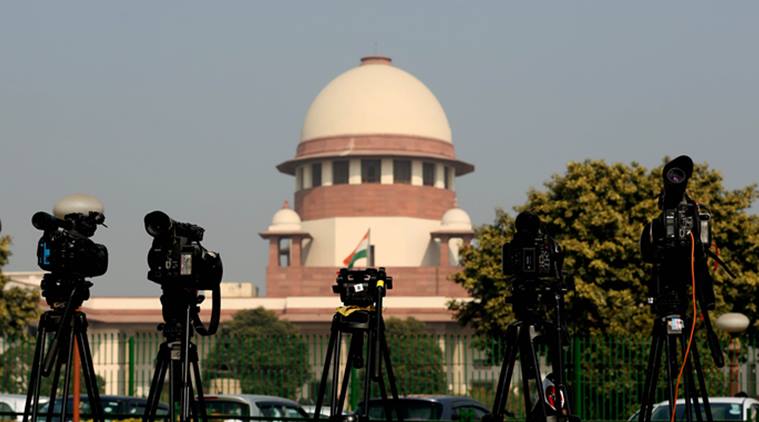 Supreme Court of India
Supreme Court of India
The Supreme Court can look into reports of Standing Committees of Parliament, and this would not amount to breach of privilege of the House, a five-judge Constitution bench ruled on Wednesday.
In three separate concurring judgments, a bench of Chief Justice Dipak Misra and Justices A K Sikri, A M Khanwilkar, D Y Chandrachud and Ashok Bhushan, however, said that no one can be allowed to question the validity of the report or impeach it.
The Centre had opposed this, contending that it will amount to breach of Parliamentary privileges and encroach into the domain of the legislature.
“There can be no dispute that Parliamentary Standing Committee report being in public domain is a public document. Therefore, it is admissible under Section 74 of Evidence Act, and judicial notice can be taken of such a document as envisaged under Section 57(4) of Evidence Act. There can be no scintilla of doubt that the said document can be taken on record,” the CJI noted, writing for himself and Justice Khanwilkar.
Agreeing with the conclusion, Justice Chandrachud added, “Once the report of a Parliamentary committee has been published, reference to it in the course of judicial proceedings will not constitute a breach of Parliamentary privilege.”
He stressed that “validity of the report of a Parliamentary committee cannot be called into question in court”, and that “no Member of Parliament or person can be made liable for what is stated in the course of the proceedings before a Parliamentary committee, or for a vote tendered or given”.
Justice Bhushan noted, “The Parliamentary privilege, that it shall not be impeached or questioned outside Parliament, shall equally apply both to a party who files claim in the court and other who objects to it.”
The court said that the Parliamentary Standing Committee report being in public domain, fair comments on it are “fully protected under the rights guaranteed under Article 19(1)(a)”. But when the comments turn into personal attack on the individual Member of Parliament, or the House, or is in vulgar or abusive language tarnishing the image of an MP or the House, it would amount to contempt of the House and breach of privilege, the judgment warned.
The bench was answering a reference made to it by a two-judge bench while hearing a PIL by social activist Kalpana Mehta and others. They had questioned the justifiability of the action by the Drugs Controller General of India and the Indian Council of Medical Research (ICMR) regarding approval of the Human Papilloma Virus (HPV) vaccine manufactured by GlaxoSmithKline Asia Pvt Ltd and MSD Pharmaceuticals Private Limited for preventing cervical cancer in women.
Questions were also raised regarding trials of the vaccine.
During the hearing, the petitioners sought to rely on a Parliamentary Standing Committee report, following which the court decided to refer the question to a Constitution bench. The two-judge bench had the doubt that “once the court is asked to look at the report, the same can be challenged by the other side…”